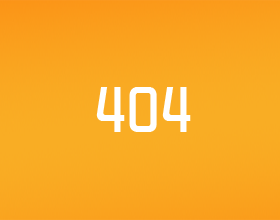Stap 5: Apparaatcode
Laten we beginnen met coderen! bij het werken met elektrische imp, moet u twee delen van de code: één voor apparaat en een ander één voor de agent. Dankzij Thomas Byrne voor het verstrekken van de klasse om de DHT11 sensor in de Github. Hier komt de apparaatcode die (een beetje lang, omdat het heeft de klasse om de DHT11):
<br><p>const SPICLK = 937.5;<br>// Class to read the DHT11 temperature/humidity sensor // These sensors us a proprietary one-wire protocol. The imp // emulates this protocol with SPI. // To use: // - tie MOSI to MISO with a 10k resistor // - tie MISO to the data line on the sensor class DHT11 { static STARTTIME_LOW = 0.001000; // 1 ms low time for start static STARTTIME_HIGH = 0.000020; // 20 us min high time for start static STARTTIME_SENSOR = 0.000080; // 80 us low / 80 us high "ACK" from sensor on START static MARKTIME = 0.000050; // 50 us low pulse between 0 or 1 marks static ZERO = 0.000026; // 26 us high for "0" static ONE = 0.000075; // 70 us high for "1" spi = null; clkspeed = null; bittime = null; bytetime = null; start_low_bits = null; start_low_bytes = null; start_high_bits = null; start_high_bytes = null; start_ack_bits = null; start_ack_bytes = null; mark_bits = null; mark_bytes = null; zero_bits = null; zero_bytes = null; one_bits = null; one_bytes = null; // class constructor // Input: // _spi: a pre-configured SPI peripheral (e.g. spi257) // _clkspeed: the speed the SPI has been configured to run at // Return: (None) constructor(_spi, _clkspeed) { this.spi = _spi; this.clkspeed = _clkspeed; bittime = 1.0 / (clkspeed * 1000); bytetime = 8.0 * bittime; start_low_bits = STARTTIME_LOW / bittime; start_low_bytes = (start_low_bits / 8); start_high_bits = STARTTIME_HIGH / bittime; start_high_bytes = (start_high_bits / 8); start_ack_bits = STARTTIME_SENSOR / bittime; start_ack_bytes = (start_ack_bits / 8); mark_bits = MARKTIME / bittime; mark_bytes = (mark_bits / 8); zero_bits = ZERO / bittime; zero_bytes = (zero_bits / 8); one_bits = ONE / bittime; one_bytes = (one_bits / 8); } // helper function // given a long blob, find times between transitions and parse to // temp and humidity values. Assumes 40-bit return value (16 humidity / 16 temp / 8 checksum) // Input: // hexblob (blob of arbitrary length) // Return: // table containing: // "rh": relative humidity (float) // "temp": temperature in celsius (float) // if read fails, rh and temp will return 0 function parse(hexblob) { local laststate = 0; local lastbitidx = 0; local gotack = false; local rawidx = 0; local result = blob(5); // 2-byte humidity, 2-byte temp, 1-byte checksum local humid = 0; local temp = 0; // iterate through each bit of each byte of the returned signal for (local byte = 0; byte < hexblob.len(); byte++) { for (local bit = 7; bit >= 0; bit--) { local thisbit = (hexblob[byte] & (0x01 << bit)) ? 1:0; if (thisbit != laststate) { if (thisbit) { // low-to-high transition; watch to see how long it is high laststate = 1; lastbitidx = (8 * byte) + (7 - bit); } else { // high-to-low transition; laststate = 0; local idx = (8 * byte) + (7 - bit); local hightime = (idx - lastbitidx) * bittime; // we now have one valid bit of info. Figure out what symbol it is. local resultbyte = (rawidx / 8); local resultbit = 7 - (rawidx % 8); //server.log(format("bit %d of byte %d",resultbit, resultbyte)); if (hightime < ZERO) { // this is a zero if (gotack) { // don't record any data before the ACK is seen result[resultbyte] = result[resultbyte] & ~(0x01 << resultbit); rawidx++; } } else if (hightime < ONE) { // this is a one if (gotack) { result[resultbyte] = result[resultbyte] | (0x01 << resultbit); rawidx++; } } else { // this is a START ACK gotack = true; } } } } } //server.log(format("parsed: 0x %02x%02x %02x%02x %02x",result[0],result[1],result[2],result[3],result[4])); humid = (result[0] * 1.0) + (result[1] / 1000.0); if (result[2] & 0x80) { // negative temperature result[2] = ((~result[2]) + 1) & 0xff; } temp = (result[2] * 1.0) + (result[3] / 1000.0); if (((result[0] + result[1] + result[2] + result[3]) & 0xff) != result[4]) { return {"rh":0,"temp":0}; } else { return {"rh":humid,"temp":temp}; } } // read the sensor // Input: (none) // Return: // table containing: // "rh": relative humidity (float) // "temp": temperature in celsius (float) // if read fails, rh and temp will return 0 function read() { local bloblen = start_low_bytes + start_high_bytes + (40 * (mark_bytes + one_bytes)); local startblob = blob(bloblen); for (local i = 0; i < start_low_bytes; i++) { startblob.writen(0x00,'b'); } for (local j = start_low_bytes; j < bloblen; j++) { startblob.writen(0xff,'b'); } //server.log(format("Sending %d bytes", startblob.len())); local result = spi.writeread(startblob); return parse(result); } } rele <- hardware.pin9; spi <- hardware.spi257;</p><p>while(1){ clkspeed <- spi.configure(MSB_FIRST, SPICLK); dht11 <- DHT11(spi, clkspeed); data <- dht11.read(); server.log(format("Relative Humidity: %0.1f",data.rh)+" %"); server.log(format("Temperature: %0.1f C",data.temp)); agent.send("temp",data.temp); imp.sleep(1);</p><p>}</p>













